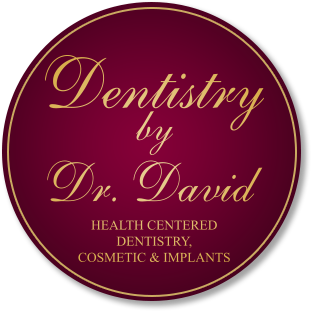General
Dentistry
Homeopathy
How Does Homeopathy Relate to Dentistry?
One of the natural methods of healing available to dentists is homeopathy, a system that utilizes a person’s basic healing properties to achieve optimum health. Homeopathy was discovered by a German physician, Samuel Hahnemann, almost 200 years ago. Using principles dating back to ancient Greece and Rome, Hahnemann formulated a science that is being practiced in many countries around the world. The basic principle of homeopathy is termed the Law of Similars, meaning “like cures like.” The law states that a homeopathic remedy can cure an illness if it produces similar symptoms in a healthy person as those of the illness. For example, if a person comes down with a stomachache with fever and chills, a homeopathic practitioner would prescribe a remedy that would cause the same symptoms in a healthy person. The remedies used in homeopathy are dilutions of natural substances derived from vegetable or mineral sources, not drugs or chemicals. Unlike traditional medicine, where a potent drug is used in strong doses to cause chemical changes in the body, homeopathic remedies work in small doses. In fact, Hahnemann found that the remedies became more effective as they were diluted more. Thus, a 6X remedy, one that has been diluted 6 times, is more effective than a 2X remedy, one diluted only 2 times. In this age of drug therapy, it may be difficult to understand why the more diluted the remedy, the more potent it is. Yet, when one recognizes the power released when atomic particles collide, or that only 5-100 millionth of a gram of thyroid controls our metabolism, it is easier to see the effect of small dosages. For more information on homeopathy, please visit homeopathic.org. Homeopathic remedies can be helpful in many ways, both before and after dental work. They can ease anxiety before a visit, reduce the tendency towards bruising and tissue damage during procedures, and relieve discomfort afterward.Homeopathic Options
Arnica Montana
This is a useful first-aid remedy for any situation involving bruising and tissue damage. Patients would take it both before and after stressful dental work, including dental surgery. Arnica may be used as long as soreness lasts or followed by another remedy aimed at more specific symptoms.Calendula
This remedy can help the body overcome inflammation, infection, and abscess. It can be taken internally or can be used as an herbal tincture. Applied to injured gums and areas around the teeth, the tincture can help reduce the chance of infection and help the tissues heal after being cut or bruised.Chamomilla
This remedy is helpful when a person is very sensitive following dental work. It sometimes works when pain medications have little or no effect, helping the person’s nerve response become more balanced.Gelsemium
This remedy can help ease the apprehension and anxiety that often precede a visit to the dentist. The person may tremble and feel weak from dread, develop a headache (in the back of the head and the muscles of the neck) or feel mentally dull and lethargic.Hypericum
This remedy is known for its soothing effect when nerve areas are injured. Shooting, jabbing pains are often felt. Hypericum is very useful after oral surgery.
Exceptional dental care is a lot closer than you think.
Located in Bolton at the intersection of 495 and Rt. 117, easily accessible from MetroWest Boston.
